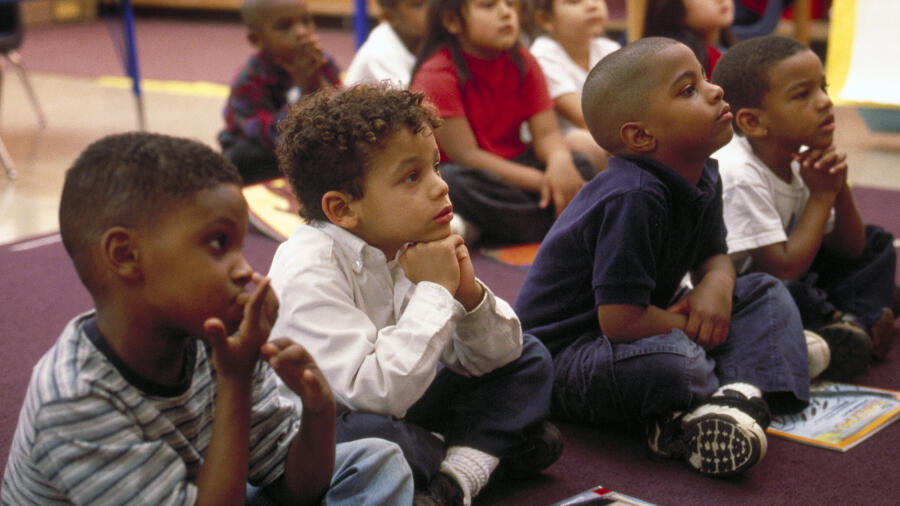For parents, back-to-school season can be both a blessing and a curse. No more attempts to occupy your kids for summer’s endless hours of free time? Definitely a blessing. Buying hundreds of dollars-worth of school supplies? ‘Curse you, three ring binders! But in the frenzy to swap sunscreen and bathing suits for backpacks and pencil cases, we often forget that our biggest allies in the coming school year will be the people who dedicate their days to teaching our kids.
Teachers. For the next 10 months, your kids will be spending eight hours a day with them. Isn’t it only fair we take the time to get their school year advice? We thought so. We asked more than 20 current and former teachers, “If you could give one piece of advice to parents, what would it be?” Their responses landed somewhere between an advice column and a confessional, but every single one came from a place of love. As one teacher put it, “We have to love what we do. If we didn’t, there’s no way we’d keep doing it.” Here’s what they had to say:
1. There are only so many hours in a day.
All moms should be able to identify with this one. Work demands, laundry, dinner, remembering your sister’s birthday… the list goes on. Remind yourself that your child’s teacher has a similar list of demands, not to mention up to 30 kids in one classroom. “If you’re concerned your kid isn’t getting the attention they need, take a step back, then come talk to us,” says one Chicago-area teacher. “We give as much individual attention as possible in a classroom setting but we’re only human.” Another teacher put it simply, “We are not Beyoncé – we cannot make miracles happen.”
2. We need your help on the home front.
Education begins and ends in the home. This goes beyond your support in the nightly homework battle. Think of creative ways to engage your child in their education. Try an innovative take on the age-old question, “So, what did you do in school today?” Also avoid sweeping, open ended questions! You’ll have more luck with “What was your (least) favorite activity today?” Show them you care about what they are learning.
3. Hold off on the blame game.
When a conflict arises in the classroom—“What?! Hendrix isn’t seated in the front of the class!?”— parents can be quick to place blame on the teacher. (Think Laura Dern’s character, Renata, in “Big Little Lies.” C’mon, everyone’s a Renata sometimes.) It’s easy to say, “This doesn’t happen at home,” but working with teachers and other parents can usually solve a problem much more efficiently. Don’t be a Renata Klein. Set an example by teaching your child not to “point the finger” when something doesn’t go their way.
4. We’re on your side. We promise!
“I’m not out to get your kid!” was an expression we heard from a couple of the teachers we talked to. One New Jersey teacher put it this way, “If I impose certain consequences for actions in the classroom, back me up.” Parents and teachers both want children to succeed, and when those groups aren’t working together, it’s usually the student who suffers. “Think of it like ‘Game of Thrones,’” says one former NYC teacher, “Groups within the Seven Kingdoms may not always agree, but if they don’t band together to fight the White Walkers, they’re all screwed.”
5. We don’t (always) make the big decisions.
“We don’t love standardized tests either,” admits one New Jersey area teacher. Sometimes, the curriculum is out of the teacher’s hands. Teachers do not always call the curriculum shots, but they can promise you they are doing the best they can with the guidelines they are given.
6. Our day doesn’t end with the last school bell.
“Summer vacation? I spend most of mine ordering and unpacking boxes of school supplies,” said one teacher. Another confessed that she wished parents knew “the extent of all the paperwork, conference notes and hours we spend writing report cards.” For better or worse, teachers often take their jobs home with them. It’s the beauty and the curse of working with kids! Just don’t jump to the conclusion they spent their entire summer vacation sipping on Long Island Iced Teas.
7. Let your child fail.
It’s hard, we know, but letting your child put forth their best effort is always better than saying, “I’ll just do that for you.” Overcoming difficulties inside and outside of the classroom helps to foster a child’s growth. “Let kids take ownership of their education,” says Kathy Morgan, a California-based guidance counselor. If kids learn their parents will bail them out when needed, that habit will follow them into high school and beyond.
8. Create learning opportunities!
A middle school science teacher we spoke to told us that “at least once a day one of my students asks me what time it is. We have a working clock on the classroom wall.” The issue, she says, is that kids are so used to cell phones, almost none of them can tell analog time. Whether it’s telling time or keeping up with current events, develop learning opportunities within your home. “I can always tell which kids are reading nightly at home,” said one grade school teacher. The more you create educational experiences for your child outside school bounds, the quicker they will be able to develop skills inside school bounds.
9. We’re not your babysitter.
Teachers are here to teach. Period. One teacher explained the difference this way: “What can be frustrating is the laundry list of requests I get from parents. I am more than willing to accommodate the needs of your child, but, ‘John likes to sit next to his friend Tim,’ isn’t a legitimate request.” Remember that teachers have lessons, projects and curriculum to cover. They don’t walk in every day and exclaim, ‘Hey class, ‘Let’s watch “Bill Nye the Science Guy” and chill!’”
10. Trust Us.
If you only pay attention to one piece of advice on this list, let it be this one. As one middle school science teacher put it, “Just, trust us.” We know placing your kid’s future in someone else’s hands can often be scary, but placing your trust in that person is always a great start.


